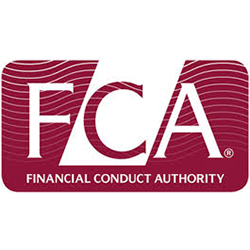People Moves
UK Regulator Gets New Boss

The new top regulator has been the CEO of the London Stock Exchange and prior to that, worked in the Treasury, handling matters such as the UK's international relationships and crucially, looked at the European connections. This area is likely to be closely watched as the UK works towards trade deals.
The UK government yesterday named London Stock
Exchange chief executive Nikhil Rathi as permanent CEO of the
Financial
Conduct Authority. He is taking over from Andrew Bailey, who
is now governor of the Bank of
England.
The FCA’s new boss had served as director at the financial
services group at the UK Treasury department from September 2009
to April 2014, before heading to the regulator. At the Treasury
he led its work on the UK’s international and European Union
financial services interests.
He is expected to take up his new role in the autumn, the FCA
said in a statement yesterday.
“Nikhil has been closely involved in guiding the FCA’s
development through his roles on our practitioner panel and
markets practitioner panel, and brings both private sector
management skills and experience of domestic and international
regulatory policymaking,” Charles Randell, chair of the FCA,
said. “I would also like to thank Christopher Woolard for
steering the FCA through its initial response to COVID-19 with
great energy and skill. He has been an exemplary leader in this
very difficult period.”
Rathi said: “In the years ahead, we will create together an even
more diverse organisation, supporting the recovery with a special
focus on vulnerable consumers, embracing new technology, playing
our part in tackling climate change, enforcing high standards and
ensuring the UK is a thought leader in international regulatory
discussions.”
Global fund data and technology provider FE fundinfo welcomed the
appointment and urged the new CEO to embrace the case for fund
“equivalency” as part of government talks on a post-Brexit set of
trade deals.
“Within the funds industry, clarity surrounding on-going
regulations, particularly when it comes to equivalence with
Europe post-Brexit, should be an immediate priority. UK-based
funds will lose UCITS status and passporting rights, and more
proportionality in things like MiFID II client reporting are
needed,” Mikkel Bates, regulations manager at FE fundinfo,
said.
“Additionally, foreign funds wishing to do business in the UK
also need clarification on what they must adhere to, and when.
The FCA has already taken steps to be more realistic about the
contents of PRIIPs KIDs and on the “10 per cent reporting rule”
under MiFID II, so it has shown that it is prepared to be
practical when necessary. We hope that Mr Rathi will use his
influence and experience in the forthcoming negotiations to
ensure the UK’s equivalence is assured.”
(Editor's note: The new man joins in turbulent times caused
by the pandemic and the rowback - in some ways - from
globalisation. The UK is working towards trade deals as the
Brexit process continues, and as the story shows, issues such as
regulatory equivalence/mutual recognition with the EU
are likely to be hot items. The FCA must also evolve how it
relates to regulators in such important hubs as Singapore and the
US. The COVID-19 pandemic shows how important digital
technology in finance is. The UK must stay on the front foot
competitively. The way certain rules were suspended because of
COVID-19 might also suggest that certain forms of red tape could
be dispensed with permanently. The controversies over the closing
of open-ended property funds and the Neil Woodfood saga also
suggest that the FCA still has work to do in assuring investors
that the rules are fit for purpose. Add in the underlying story
of how citizens fund retirement when the public sector is awash
in debt, and the FCA's new CEO is going to be busy.)
